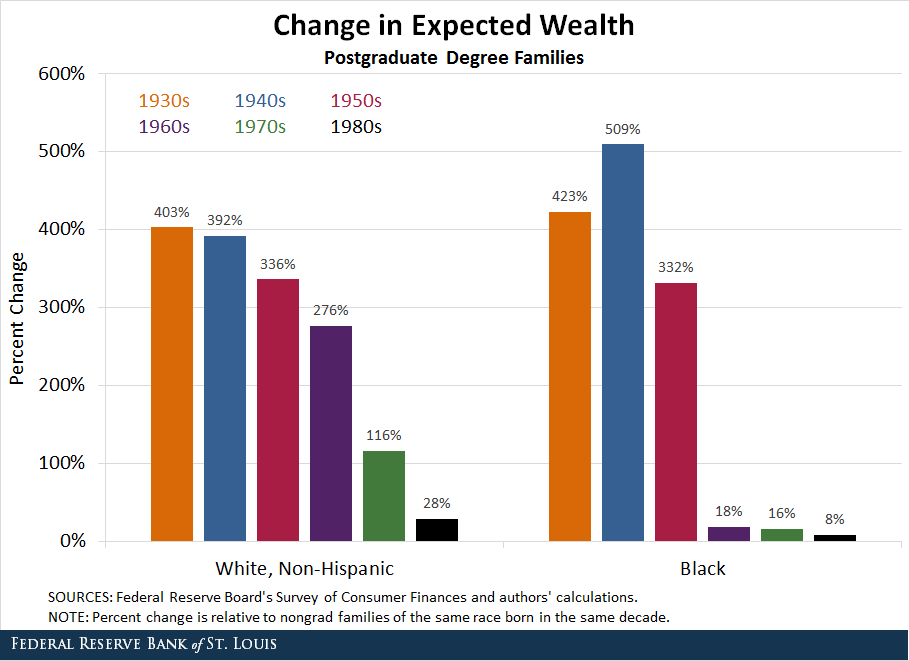The wealth benefit of college degrees is declining
A new study reveals that the economic benefits of a college or a graduate school degree are diminishing.
As student loan debt hits new record highs with 44.2 million graduates now owing about $1.5 trillion, researchers at the the Federal Reserve Bank of St. Louis took a closer look at how the degrees are helping graduates in their lifetime.
Studying six generations of data from the 1930’s to the 1980’s, they found that while graduates earn more in terms of income over their lifetime, they haven’t accumulated more wealth.

This means that despite their higher levels of education, these graduates are not accumulating financial and non-financial assets, like stocks, bonds, and homes, for example — which should also represent part of overall wealth. (In the research, wealth is defined not just as income, but includes these other assets as well.)
The researchers used the Federal Reserve Board’s Survey of Consumer Finances to tease out the nuance to study how the boost to wealth accumulation associated with college has fallen across generations.

The 1930’s were the best time to get a college degree, according to the study.
“White and black grads born in the ‘30s accumulated 247% and 509% more wealth, respectively [than their non-graduate peers]. This compares with 42% and 6% more wealth for white and black grads born in the ‘80s.”
Grad families born before the ‘80s “received a much greater boost to wealth accumulation than their nongrad peers,” they wrote. (The “educational attainment of a family refers to the highest degree obtained by the household head,” according to the Fed.)

Graduate school, on the other hand, has declined even more dramatically — particularly for black graduates.
“Expected earnings associated with a postgraduate degree have declined somewhat over time among white families,” the researchers wrote.
“Among white postgrads, the wealth boost ranged between 403% and 276% for postgrads born in the ‘30s through ‘60s.”
But while black postgrads born in the ’50s accumulated 332% more than their nongrad peers, those who were born in the ’60s, ’70s and ‘80s “do not have statistically higher wealth than blacks who didn’t graduate from college.”
That means that between the ‘60s and the ’80s, a college degree wouldn’t have made a significant contribution to a black person’s wealth.
Follow Aarthi on Twitter.
Read more:

